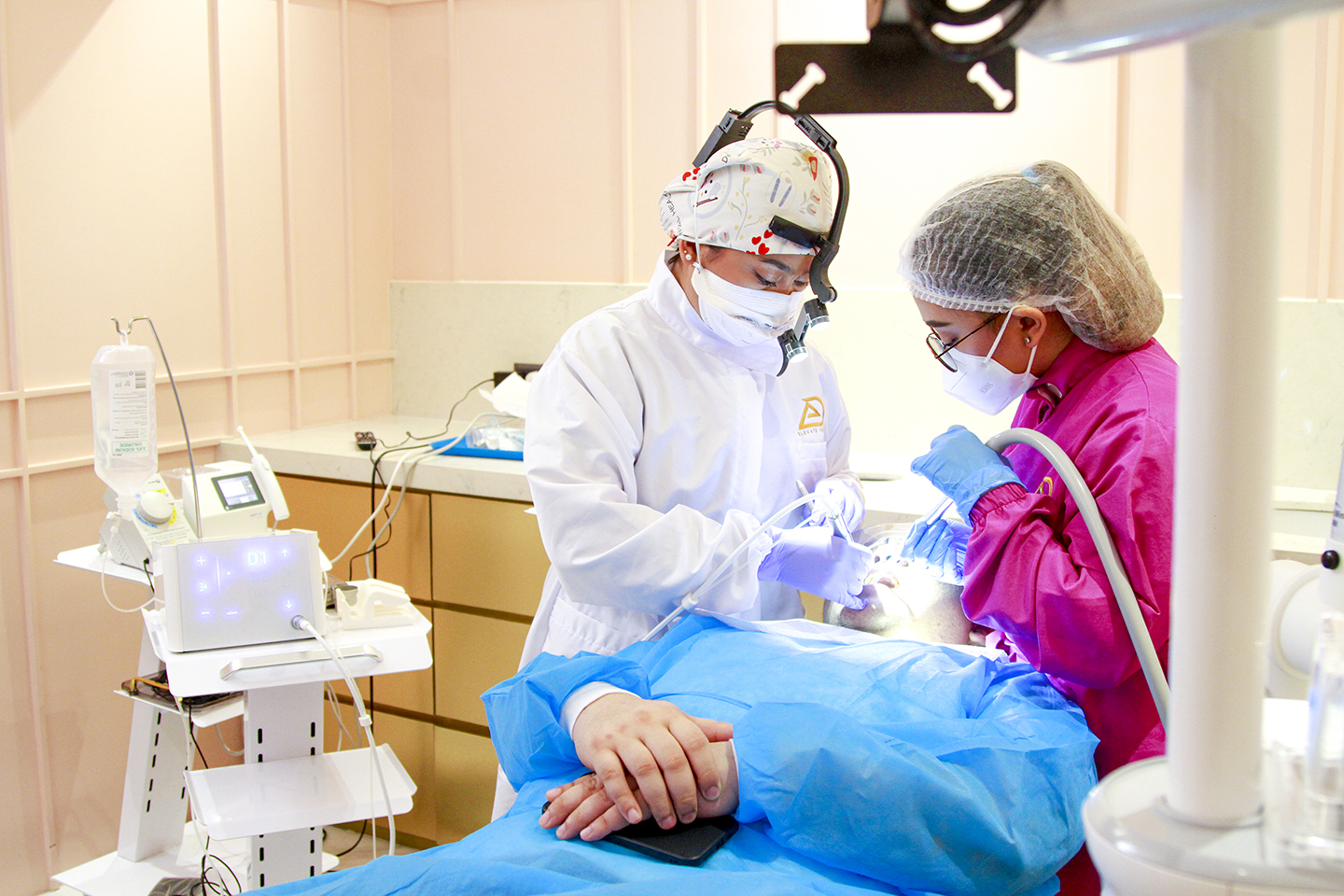Oral Surgery
Oral surgery encompasses all operations performed on the teeth, jaw, gums, or the surrounding oral and facial structure.
It is commonly performed to remove decayed or damaged teeth, to extract an impacted wisdom tooth, to prepare the mouth for dentures, to place dental implants, and to repair jaw problems.

Different types of Oral Surgery
Tooth Extraction
A tooth extraction is one of the most common types of oral surgery. This is performed to treat:
- extensive tooth decay that can no longer be saved
- severe mobility caused by gum disease
- dental traumatic injuries
- overcrowding of teeth as a preparation prior to definitive treatments such as braces
Impacted Wisdom Teeth Removal
Third molars, also known as wisdom teeth, typically emerge during a later stage of development, typically between the ages of 18 and 21. They are situated last, at the back of the upper and lower dental arches. Frequently, there is insufficient room for them to erupt properly, leading to impacted teeth.
Impacted teeth cause a variety of problems such as pain, infection, swelling, damage to the adjacent teeth, crowding of teeth, TMJ disorders such as clicking and lockjaw, etc.
Dental Implant
Dental implants are the most reliable and permanent replacement to a missing tooth. Medical-grade titanium threaded posts are embedded into the bone, allowing for bone integration and remodeling. Once the implants have healed, they are restored with dental crowns, bridges, or dentures.
Dental Bone Graft
A dental bone graft is used to treat bone loss in a patient’s jaw. This type of oral surgery restores the volume and density in the jawbone to allow for dental implants to be placed in the future. A dental bone graft also provides a solid foundation to keep the teeth strong and healthy.
Periodontal Surgery
Periodontal surgery is used to treat severe periodontitis, otherwise known as gum disease. With this dental procedure, the gums are incised and reflected under local anesthesia, to allow the dentist to thoroughly clean the teeth and remove the plaque and calcular deposits that have accumulated underneath the gums. After the cleaning, the gums are repositioned and sutured in place.
Do’s and Don’ts After Undergoing an Oral Surgery
An oral surgery is a very delicate procedure that requires a lot of aftercare steps. Here are some of the important Do’s and Don’ts after undergoing an oral surgery.
Do’s
- Use an ice pack on your face to alleviate the swelling or skin color changes
- Diet as tolerated, advisable to consume soft foods like pasta, rice, or soup
- Drink plenty of fluids
- Brush your teeth gently near the surgical site
- Take the drugs your doctor prescribed to ease the pain or swelling
- Call your doctor if you have a fever, or if your pain or swelling doesn’t improve
Don’ts
- Don’t consume hot foods or beverages for the next 48 hours after your surgery as this may encourage bleeding
- Don’t drink through a straw. Sucking creates a negative pressure in your mouth, that may loosen the granulation tissue on a healing surgical site
- Don’t rinse your mouth too harshly. Your doctor may suggest rinsing gently with saltwater
- Avoid strenuous activities
- Don’t eat hard, crunchy, or sticky foods that may scratch your wounds
- Don’t smoke. Smoking can slow your healing


